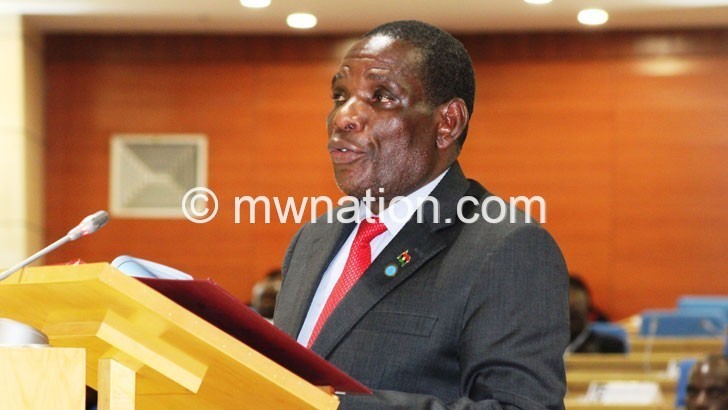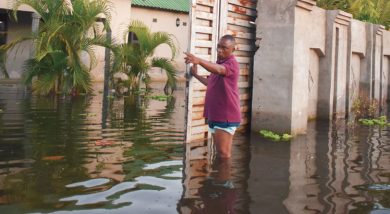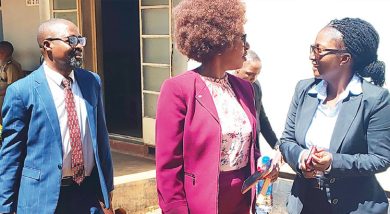New budget to focus on economic recovery
Minister of Finance, Economic Planning and Development Joseph Mwanamvekha says the 2020/21 National Budget will primarily focus on mitigating the impact of the coronavirus (Covid-19) pandemic and expedite economic recovery.
Speaking in an interview in Lilongwe yesterday ahead of the official opening of the Budget Meeting of Parliament by President Peter Mutharika with a pre-recorded State of the Nation Address (Sona), the minister said the budget will also seek to build the economy’s resilience against external shocks.

During the interview, Mwanamvekha admitted that two major uncertainties bothering him are the Covid-19 pandemic and the fresh presidential election whose court-prescribed period expires on July 3, but faces funding hitches.
He said: “Implementation of the 2020/21 Budget will face a lot of challenges, mainly because of uncertainties. The first uncertainty is that we do not know when Covid-19 will be managed or contained.
“Secondly, we don’t know what will happen after the election. So, those are the uncertainties that have made even the preparation of the budget difficult.”
In view of the two perplexing uncertainties, the minister said Treasury is weighing three scenarios that will underpin the 2020/21 Budget framework.
Mwanamvekha said at the time of starting budget preparations, the assumption was that Covid-19 would end by this month.
By yesterday, the country had a cumulative total of 369 Covid-19 cases, an increase from only three first cases confirmed on April 2. To date, 51 people have recovered and four died.
The minister’s second worst fear is that if the pandemic is not contained by September, economic growth will be minimal and that if Covid-19 persists until December 2020 “it means now we will be talking about a recession [a period of economic decline during which trade and industrial activity shrink and is generally manifested by a fall in gross domestic product (GDP) in two successive quarters]”.
Besides, the forthcoming budget also faces a potential revenue medium and large—are panting with a constrained demand for their goods and services, thereby making it tough to pay or honour their tax obligations to the Malawi Revenue Authority (MRA).gap as businesses—small,
With the 2019/20 National Budget initially pegged at K1.74 trillion before being adjusted by K100 billion to K1.84 trillion during the Mid-Year Budget Review in February, most economic analysts we spoke to yesterday projected that the 2020/21 financial paper will likely exceed such a mark due to increased expenditure needs and obligations by Treasury.
In an interview yesterday, economist Gowokani Chijere-Chirwa feared that the new budget will cost Malawians a lot, especially due to the Covid-19 pandemic and the fresh presidential election.
From a revenue point of view, Blantyre-based tax analyst Emmanuel Kaluluma yesterday described the current situation on the ground as “scary”.
He described domestic revenue as a “blood stream” for government but noted that in the face of the Covid-19 pandemic businesses are in deep problems.
Commenting on income tax or Pay As You Earn (Paye), the tax expert stated that with some employees in other companies not being paid and with some employers putting their employees on half-pay, this implies also little tax revenue available to government.
Sounding helpless, Kaluluma said: “I think we just have to look up to the mercy of the Lord. We should kneel down, asking for his intervention. Things are tough and the environment is harsh for businesses.
“Worse still, because of politics, not much is being done to rescue the situation, as people who are supposed to do something to cushion ordinary people, have got their eyes on politics…We are in trouble and let us just accept and agree.”
On his part, Budget and Finance Committee of Parliament chairperson Sosten Gwengwe yesterday said the committee is anxious to see how creative the budget will be, to ensure that Malawians as well as development projects, do not suffer.
The budget will be tabled on June 12 and thereafter the House will break into cluster meetings for two weeks.





